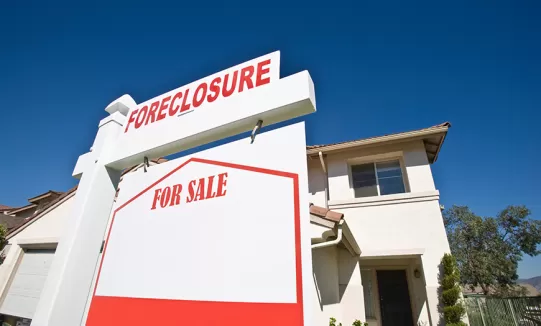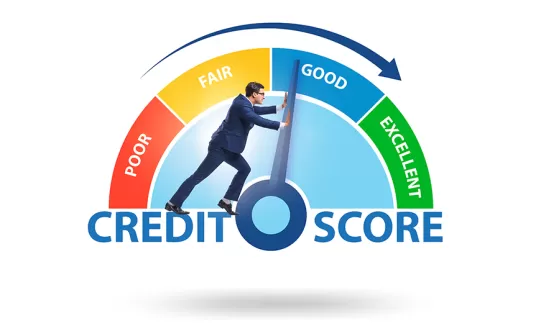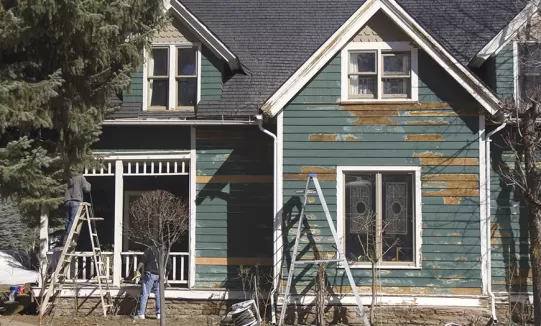Help for Nevada Homebuyers Facing Financial Hardship
With companies restructuring, cutting back on employee hours, or even shutting their doors, many Nevada homeowners’ ability to pay their mortgage has been impacted during the past year and a half. If the pandemic has put you at risk of losing your home, there is some good news — you may qualify for a new loan option from the Government National Mortgage Association, Ginnie Mae.
In June of 2021, Ginnie Mae introduced the 40-year mortgage, a loan term extension available to borrowers who are experiencing financial hardship.
Michael Drayne, Ginnie Mae acting executive vice president, said in a press release, “We have begun the work to make this security product available, because an extended term up to 40 years can be a powerful tool in reducing monthly payment obligations with the goal of home retention.”
“As interest rates rise, this 40-year feature will enable more payment reduction options to help homeowners," said Alanna McCargo, senior advisor of the U.S. Department of Housing and Urban Development (HUD). Noting that HUD is committed to helping keep people in their homes, she added, “Ginnie Mae has been integral to the interagency actions to prevent foreclosure for homeowners experiencing financial hardship as a result of [the COVID-19 pandemic].”
Other resources to support homeowners
As part of its insurance contract with lenders, the Federal Housing Administration (FHA) provides loss mitigation actions the lender must evaluate and take, when appropriate, to reduce financial losses on loans in default. Your lender needs information from you to fully evaluate these options. If you want to keep your home, talk to your lender about available options for home retention.
- Special Forbearance — Your lender may provide for a temporary reduction or suspension of mortgage payments to allow you time to overcome the problem that reduced your income. Then you may be offered a payment plan so you can repay the missed payments a little at a time until you are caught up. An extended forbearance period may be provided to unemployed borrowers who are actively seeking employment.
- Mortgage Modification — A modification is a permanent change to your loan where overdue payments may be added to your loan balance, the interest rate may be changed, or the number of years you have to pay off the loan may be extended. The Ginnie Mae 40-year loan is a new extension option.
- Partial Claim — As the borrower, you receive a second loan to bring the delinquent loan current. The loan is interest free and does not need to be repaid until you pay off your first mortgage or sell your house.
- FHA-Home Affordable Modification Program (FHA-HAMP) — This option combines an enhanced partial claim with a loan modification. An FHA-HAMP may also include an amount to reduce your existing loan balance by up to 30%.
To qualify for any of these options, you will need to provide your lender with current information about your income and expenses. Also, your lender may require that you agree to a payment plan for three or more months to demonstrate your commitment before you are approved for a modification or partial claim.
Be aware of foreclosure scams
If you are facing foreclosure, be aware of scams. You may be approached by organizations offering a quick fix to your mortgage problems. They often charge hefty fees or require that you “temporarily” sign over your deed to them. If it sounds too good to be true, it most likely is.
- Check with a lawyer, your lender, or a HUD-approved housing counselor before entering into any deal involving a loan assumption, contract of sale, or a transfer of the deed to your home.
- If you can’t afford your current mortgage, don’t be talked into refinancing into a new loan with a higher payment.
It’s up to you — take action to prevent foreclosure
Ultimately, homeowners are responsible for their mortgages. Failing to keep up on payments can affect your credit and your ability to make future purchases or even rent a home. The first step when you are struggling with payments is to contact your lender right away. You can find a contact number on your mortgage statement.
If you have an FHA-insured loan and you’re struggling, you can also get assistance by contacting HUD’s National Servicing Center at 877-622-8525. Persons with hearing or speech impairments may reach this number via TDD/TTY by calling 800-877-8339.


